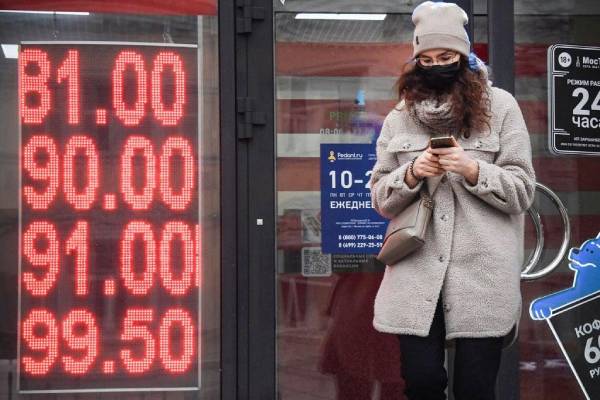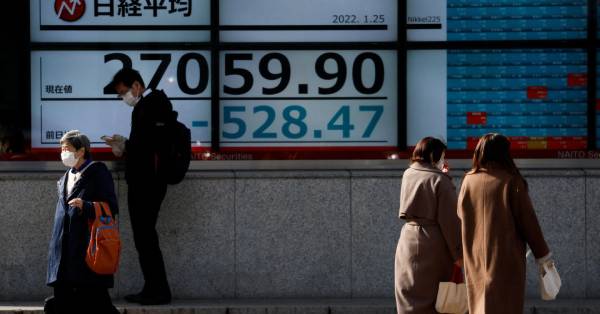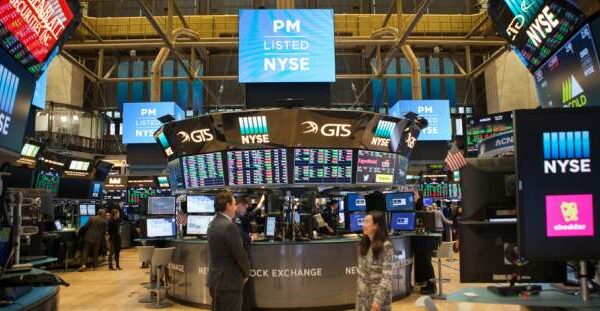Russian stocks declined and the ruble hit a record low against the dollar on Thursday after Russian soldiers sent off an assault on Ukraine.
The attack is probably going to set off another flood of “full scale” sanctions focused on President Vladimir Putin’s inward circle and Russia’s oil-subordinate economy.
Russia’s attack of Ukraine has set off alarm in the nation’s business sectors, clearing a huge number of dollars off the worth of its greatest organizations and plunging its cash, the ruble, to a record low against the dollar.
An expansive hostile by Russian powers designated military foundation across Ukraine as well as a few air terminals. The attack started hours before first light and immediately spread across focal and eastern Ukraine as Russian powers assaulted from three sides. Ukrainian authorities said in excess of 40 officers and upwards of 10 regular folks had been killed, and the agent inside serve announced “wild battling” at an airbase close to the Ukrainian capital.
The request by Russian President Vladimir Putin for a tactical activity in Ukraine is relied upon to be trailed by extreme assents against Russia and the business sectors responded in like manner on Thursday morning.
The Moscow stock trade had suspended exchanging before on Thursday yet while managing continued, stocks went into free-fall.
At a certain point, the ruble was exchanging at 85 to the dollar, down 4% after prior hitting another record low of 89.60. provoking Russia’s national bank to say it would intercede in the cash market and give additional liquidity.
The MOEX record plunged as much as 45% prior to recuperating somewhat to shut down 33%, while the RTS file – which is designated in dollars – finished the day with misfortunes of 39%. The accident cleared about $70 billion off the worth of Russia’s greatest organizations.
The Moscow stock trade, the MOEX list, plunged by 45% on Thursday while the dollar-named RTS list drooped in excess of 40%, detailed.
Russian banks and oil organizations were among the hardest hit in unstable exchanging, with shares in Sberbank (SBRCY) – Russia’s biggest loan specialist – losing 43% of their worth. Rosneft, in which (BP) possesses a 19.75% stake, likewise shed 43%. BP shares dropped 4.6% in London. Gazprom (GZPFY), the monster gas organization behind the Nord Stream 2 pipeline, was down 35%.
By 12:15 p.m. neighborhood time (4:15 a.m. ET) the accident had cleared $75 billion off the worth of Russia’s greatest firms with shares in the country’s biggest moneylender Sberbank at one phase losing 57% of their worth.
Russia’s national bank said in an explanation that it had taught representatives to suspend short deals “given the current circumstance in the monetary market and to safeguard the freedoms and real interests of financial backers.” That implies they can never again get protections to sell fully expecting repurchasing them at a lower cost. The request produced results at 11:00 a.m. nearby time.
Energy goliath Rosneft, in which BP claims a 19.75 percent stake, plunged as much as 58%.
The MOEX stock list was exchanging about 29% lower soon after 1:30 p.m. nearby time (5:15 a.m. ET) which would make it its most obviously awful meeting starting around 2016, as per Reuters.
The ruble was exchanging at almost 88 to the dollar, down 8%, after prior hitting another record low of 89.60. The Russian national bank said it would mediate in the cash market and give additional liquidity to the financial area.
There was a thump on impact across Europe and steep falls were found in business sectors, with the U.K’s. FTSE 100 list down 2.5 percent and Germany’s Dax list falling by 3.5. percent.
“This passionate response was inescapable, and yet it will settle,” Kremlin representative Dmitry Peskov said regarding the market disturbance in a call with unfamiliar writers. “Every one of the fundamental measures have been taken for this,” he added.
With Russia the second greatest exporter of unrefined petroleum, and the world’s biggest flammable gas exporter, world energy markets are preparing themselves for extensive aftermath from Putin’s choice to attack Ukraine.
The United States, European Union, United Kingdom and different partners declared restricted new endorses on Russia recently after Moscow said it would send troops into two breakaway areas of eastern Ukraine. Germany said it was suspending accreditation of the dubious Nord Stream 2 gas pipeline.
Brent rough fates rose almost 9% to exchange at $105.36 a barrel at around 5.40 a.m. ET, which is their most elevated level in over seven years.
In the mean time, U.S. West Texas Intermediate prospects moved over 8.2 percent to exchange at $99.67, revealed. Petroleum gas costs went up 4.1 percent while spot gold, customarily considered to be a place of refuge resource, climbed 3%.
US, EU and UK authorities have clarified that a lot harder measures would follow should Russia attack.
German Foreign Minister Annalena Baerbock said on Thursday the European Union is set to release “the full bundle of assents” against Russia, adding that the world should answer fearlessly or risk following through on a considerably greater expense.
U.S. stock prospects additionally fell forcefully early sending records off 2% as the tactical hostility caused anxiety on Wall Street.
Dow fates fell by 837, or 2.5 percent, while fates attached to the S&P 500 drooped by a similar sum. Nasdaq 100 prospects additionally went down, by 3%, announced.
“We woke up in an alternate present reality,” Baerbock told journalists at a news meeting in Berlin, adding “we will send off the full bundle of gigantic assents against Russia.”
The Baltic territories of Lithuania, Estonia and Latvia called for Russia to be catapulted from SWIFT, the solid informing administrations that works with installments among 11,000 monetary organizations in 200 nations.
In a proclamation, SWIFT said it was “a nonpartisan worldwide agreeable” and “any choice to force sanctions on nations or individual elements rests exclusively with the capable government bodies and relevant officials.”
Barring Russia from SWIFT would make its economy shrivel by 5%, previous money serve Alexei Kudrin assessed in 2014 – the last time this assent was considered because of Russia’s addition of Crimea
Disclaimer: The views, suggestions, and opinions expressed here are the sole responsibility of the experts. No journalist was involved in the writing and production of this article.





